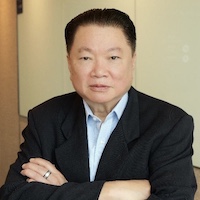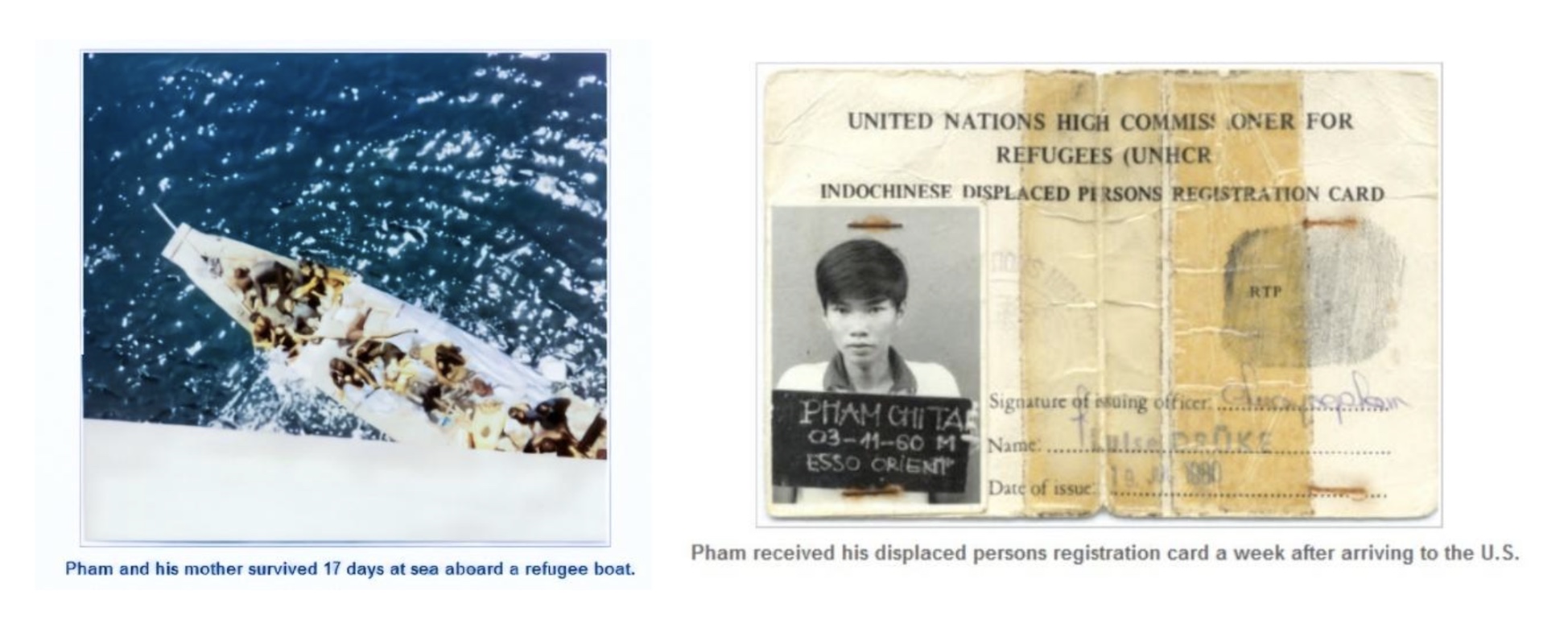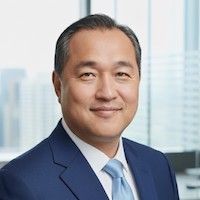From survival to systemic change
In 1980, Tai Pham drifted at sea for 17 days on a refugee boat. Four passengers died. He and his mother survived on hope alone, rescued just hours before a typhoon would have ended their lives by a Singaporean oil tanker. An Italian captain defied direct orders from his company not to intervene. He saved Tai’s family and fellow passengers but was later dismissed for his act of humanity. Forty years later, Pham is still navigating storms—this time, digital ones.

Now CEO of Bangkok Silicon (BKS), Pham leads what may be Southeast Asia’s most daring transformation of agriculture and the developing nation. But this isn’t just a startup success story. It’s a systems-level intervention backed by government mandates, infrastructure plans, and KPI-driven execution.
“If Grameen Bank weaponized microfinance to fight poverty,” Pham says, “we’re weaponizing data to liberate farmers.”

Why agriculture, why now?
Thailand’s agricultural sector employs 30 percent of its workforce—yet contributes just 10 percent to GDP. With an aging workforce, mounting climate volatility, and persistently low productivity, traditional farming is no longer sustainable.
Enter BKS, launched in 2024 under a mandate from the Thai government and backed by bold, multimillion-dollar domestic investment. Its mission: to build a digital operating system for rural Thailand.
The vehicle? A Center of Excellence for Agricultural Technology that integrates AI crop forecasting, IoT sensors, mobile marketplaces, and digital subsidy disbursement.
Pham argues that agriculture should be the testbed for national digital transformation: high-need, high-impact, and long-overdue reinvention.
![]()
Not software. Infrastructure. Trust. Impact.
“We’re not building an app,” Pham emphasizes. “We’re rebuilding an entire trust system.”
In its first phase, BKS will focus on precision deployments across provinces like Trat, Rayong, and Chanthaburi in the Northeastern Thailand. Taking a crawl-walk-run approach, the team will begin with offline digital literacy sessions, distribute tablets, and train local champions—laying the groundwork before introducing IoT tools and a blockchain-based agricultural traceability system.
The KPIs speak for themselves:
Impact Snapshot: BKS Agriculture Transformation
|
Execution-driven, not slideware
What sets BKS apart from typical digital transformation firms is its bias for execution. While BKS is a private company, its initiatives are closely aligned with the Ministry of Agriculture and Cooperatives (MOAC)’s digital priorities. Each strategic project—from AI-powered irrigation to mobile-first market platforms—is managed with clear delivery milestones and adoption metrics. Project managers at BKS work in close coordination with farmers and government counterparts to ensure real-world impact—not just slide decks.
From personal legacy to global template
This isn’t Pham’s first transformation. In 1994, he founded Paragon Solutions, Vietnam’s first offshore development center. The company became a launchpad for a generation of tech leaders—its alumni now hold key leadership roles across Vietnam’s top IT firms, including the Chairman of TMA Solutions, one of the country’s largest technology companies.
Today, he’s orchestrating a Thai-Vietnamese coalition to build a 2,000-person tech workforce in Thailand by 2026. His vision? A 50:50 blend of Vietnamese talent and Thai capital, working as one brain.
He’s also working with Thailand’s top universities to establish farm-focused coding academies and AI research labs linked to MOAC data. Students don’t just learn code; they learn how to train crop yield models and deploy water-saving algorithms.
“Silicon Valley is built for convenience. We’re building for survival.” – Tai Pham
The bigger bet: a blueprint for the Global South
If BKS succeeds in Thailand, it won’t end there. There are over 500 million smallholder farmers across Asia, Africa, and Latin America. Most remain digitally excluded.
Pham isn’t just running a company. He’s building a replicable, fundable, trust-based framework to digitize rural economies—one that governments, DFIs, and impact investors can rally behind.
As BKS refines its model in Thailand, there is long-term ambition to explore how similar approaches could be adapted in other emerging markets, such as Indonesia or Vietnam. While still early-stage, the team is considering how future collaborations with global development institutions and local partners might bring the Thai playbook to new frontiers.
Conclusion: From crisis to catalyst
From surviving pirates and typhoons to restructuring national agriculture at age 64, Tai Pham’s journey isn’t about second chances. It’s about finishing the job.
If the first digital revolution skipped the global South, the second has no excuse. Bangkok Silicon is here to make sure of that.
 David Kim is an investment bank turned tech journalist, focusing on digital transformation and tech ecosystems across Asia. Based in Vietnam, he advises founders and government leaders on innovation, growth, and legacy.
David Kim is an investment bank turned tech journalist, focusing on digital transformation and tech ecosystems across Asia. Based in Vietnam, he advises founders and government leaders on innovation, growth, and legacy.
TNGlobal INSIDER publishes contributions relevant to entrepreneurship and innovation. You may submit your own original or published contributions subject to editorial discretion.

